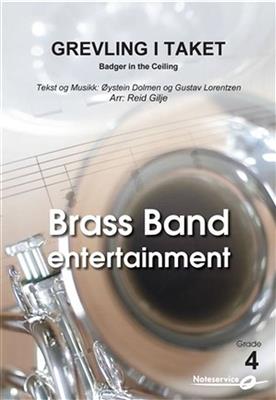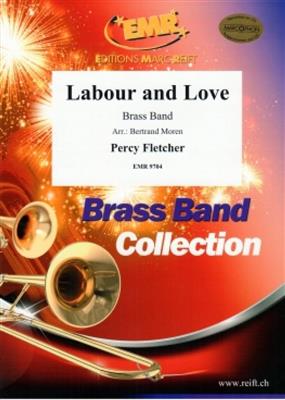Results
-
 £115.60
£115.60Griffenfeldt - John Philip Hannevik
Here we present "Griffenfeldt, a folk-dance in the style of a Norwegian reinlender.This arrangement can be used as the first item in a concert, or after an interval.The musicians can come on stage as they join in. That is why two of the measures are notated "repeat till ready", here you have to wait until everyone is in place! If everyone is ready from the start, the repetition can be omitted.Be sure to play with a bouncy but singing style, not with short and harsh articulations.Do the trills on the beat, but these can also be omitted if it makes it too difficult.To bring out the folk music style a little extra, you can ask the musicians to play on the "backbeat", i.e. emphasize the last half of each quarter-note.In addition, the music will really come to life if all "solo" places are done standing up.The musician Anon Egeland tells this story:This song got its name from a party where it all just got a bit too lively: one of the party-goers started shooting into the ceiling with a gun just as this reinlender was being played. The fiddler - or was it the man with the gun? - was called Griffenfeldt, and that gave the name for the song.
Estimated dispatch 5-14 working days
-
 £115.60
£115.60Grevling i taket - Øystein Dolmen og Gustav Lorentzen - Reid Gilje
This is an arrangement which has to be performed a bit humorous in the spirit of the original.It starts with a kazoo-like opening, played on the mouthpieces. At C, baritones and euphoniums should stand up. Maybe the musicians can play it by heart?Two bars before D, the tempo increase. On E, the cornet players should stand (and play by heart)?New, even higher tempo two bars before F. The trombonists should stand up in bar 103 to prepare for a terrific tempo. But G will be played like a laidback reggae-version. Flugelhorn and horns can stand up simultaneous with the glissando in bar 120.The tempo at H should be high and fresh and with several sections standing. In bar 158 should almost all players sit. At bar 160 everyone should stand up.In bar 162, all players should turn to the audience during the crescendo.
Estimated dispatch 5-14 working days
-
 £154.60
£154.60The Labyrinth - Hans Offerdal
This piece was commissioned by Movig og Sjostrand skolemusikk to their 50th anniversary in 2017. Premiere performance took place at Kilden in Kristiansand, 17. november 2017, conducted by Sofie E. Ringen. Originally written for concert band, this is an instrumentation for Brass Band. The piece is about being trapped in a labyrinth - and fighting to get out!
Estimated dispatch 5-14 working days
-
 £72.70
£72.70Honorary March of Her Majesty Queen Sonja - Svein H. Giske
This march was commissioned by The office of cultural affairs in Fana and Ytrebygda (a part of Bergen Municipality) for the opening of The Bergen Light Rail.The premiere was given by The Norwegian Navy Band Bergen and Smoras skolemusikkduring the light rails maiden voyage. Her Majesty Queen Sonja of Norway opened the light rail on June 22nd 2010.My idea was to give the march a strong link to Bergen. In the bass solo (letter B) I have quoted Bergens "national"anthem Nystemtn and in the Trio (letter E) I have used a bugle call from Bergens unique tradition of archerchery brigades. The first part of the march is meant to have a sort of train feel to it; somethingthats moving steadily through thestreets of the city.
Estimated dispatch 5-14 working days
-
£67.20
All By Myself - E. Carmen - Frank Bernaerts
Estimated dispatch 5-14 working days
-
 £68.00
£68.00The Spirit Of Pageantry - Percy E. Fletcher - Darrol Barry
Estimated dispatch 5-14 working days
-
 £100.00
£100.00Dynasty Theme - John E. Davis - Marcel Saurer
Estimated dispatch 5-14 working days
-
 £100.00
£100.00Beverly Hills 90210 - John E. Davis - Suba
Estimated dispatch 5-14 working days
-
 £116.10
£116.10Labour and Love - Percy E. Fletcher - Bertrand Moren
Estimated dispatch 5-14 working days
-
 £35.00
£35.00April in Paris - Yip Harburg
Music by E Y Harburg, words by Vernon Duke. Arranged by Mark Freeh for Brass Band and Flugelhorn solo. Includes Score and Parts.
Estimated dispatch 5-14 working days
